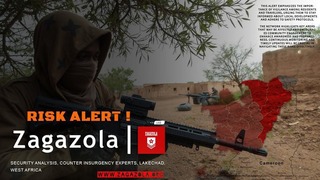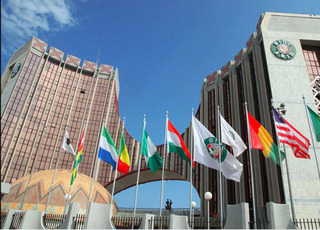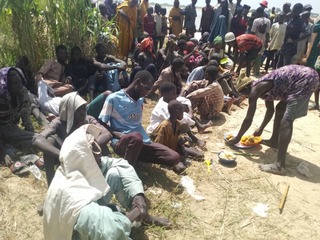Update on Simultaneous Terror Attacks at Modibo Keita International Airport and Faladié Gendarmerie Camp in Bamako
On September 17, 2024, coordinated terrorist attacks were launched by militants from the Jama’at Nusrat al-Islam wal-Muslimin (JNIM) on two key sites in Mali's capital, Bamako—Modibo Keita International Airport and the Faladié Gendarmerie Camp. The attacks, which lasted approximately nine hours, caused significant damage and have shaken the Malian capital.
The attackers, estimated to be around 15 heavily trained fighters, infiltrated the city without using vehicles, launching their assault on foot and via scooters. Led by two young commanders, Abdel Salam al-Foulani and Salman al-Bambari, the attackers targeted critical government and military infrastructure. Two-thirds of the group focused on the airport, while the rest attacked the gendarmerie school at Faladié. The attackers were identified as inghimassi fighters—elite jihadist commandos determined to fight until death.
At the airport, the JNIM claimed to have destroyed six military aircraft, including a drone, and severely damaged others. Civilian infrastructure, such as the presidential Boeing 737, a Malian army CASA, and a World Food Programme (WFP) ATR-72, was also reportedly hit. Several buildings, including hangars and pavilions, were set ablaze. Though the full extent of the damage remains unclear, it is likely that the attack severely hampered the air capabilities of the Malian Armed Forces (FAMAS). The JNIM has boasted of taking control of the airport's civilian section for hours, raising concerns about the lack of an immediate response from Malian security forces.
The simultaneous assault on the Faladié Gendarmerie Camp, though repelled more quickly, caused heavy casualties. Initial reports suggest that dozens of gendarmes were killed or injured, and a student dormitory was set on fire. Local hospitals were overwhelmed with casualties, and at least 30 bodies were reported.
The attacks triggered a wave of arrests in Bamako, but many of these arrests were based on ethnicity, with young Fulani men being detained without clear evidence. In some instances, this led to public lynchings, with at least two Fulani individuals being burned alive by civilians.
The slow response of Malian security forces, particularly at the airport, has raised questions about the effectiveness of the state's defenses in such strategic locations. Notably, the Wagner Group, stationed nearby, did not appear to play a significant role in repelling the attackers, raising speculation about their limited mandate in Mali.
The Malian government has yet to release an official casualty report. Estimates of the death toll vary widely, with figures ranging from five to 67 killed and up to 145 injured. The exact extent of the damage and long-term impact on Mali's security infrastructure remains uncertain, but these attacks are a significant blow to the country's efforts to maintain stability.






























